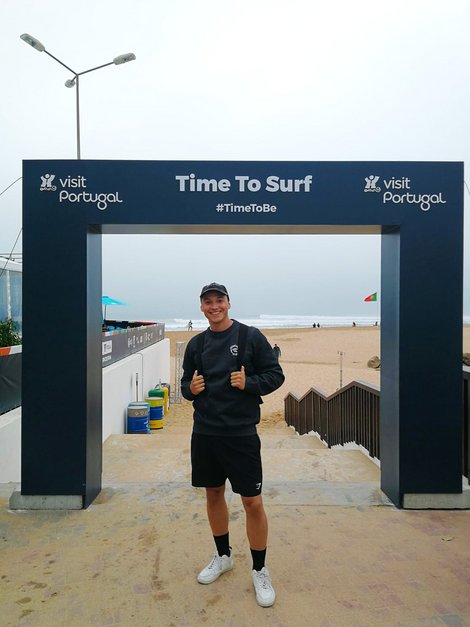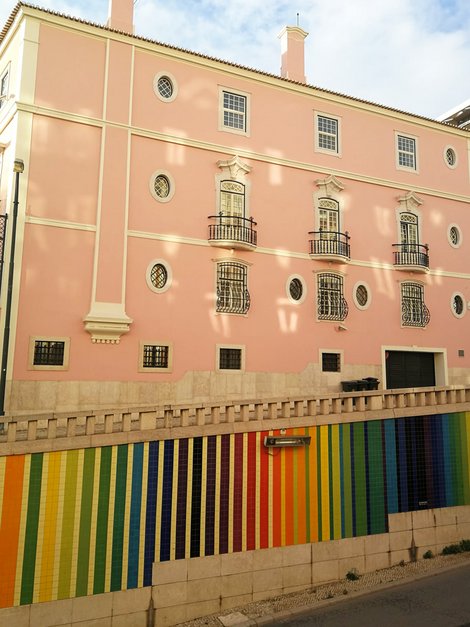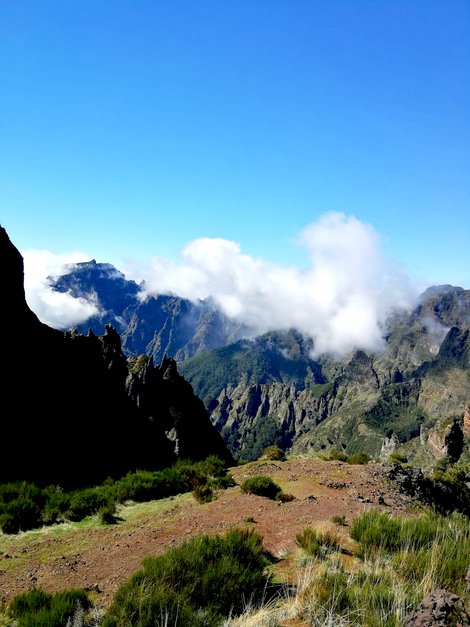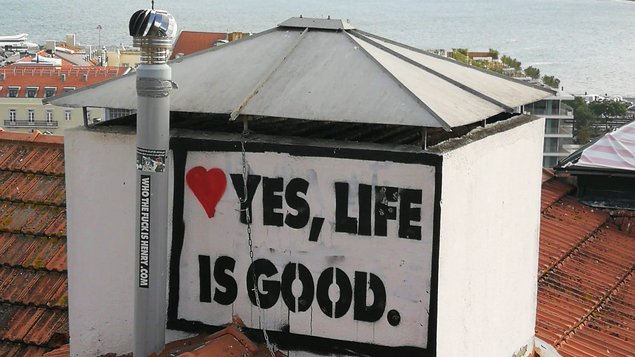Alexander Becker is in his fourth semester of a Master's degree in Environmental Process Engineering at Clausthal University of Technology. He spent three months in Portugal during the winter semester. In the capital Lisbon, he completed an internship at the Instituto Superior Tecnico (IST), a partner university of the TU.
Why did you decide to spend an academic semester abroad?
Because I am very interested in other cultures, I already knew during my Bachelor's degree that I would like to spend time abroad. Intercultural exchange is part of everyday life in Clausthal - the city is a living example of diversity. Alongside my studies, I also worked as a language coach at the International Center. At the beginning of my Master's degree, I wanted to take the opportunity to gain experience abroad myself and found out about the different ways to go abroad.
How do you get an internship in Portugal?
About a year before the internship began, I applied for internships in the field of sustainable energy production via the IAESTE program (International Association for the Exchange of Students for Technical Experience). During the pre-selection process for internships, I was able to specify my skills and interests as well as my preferred locations. In the end, I was accepted for the position in Lisbon.
Did you prepare for your stay abroad in advance?
I didn't need any special language skills. The internship and the entire working day took place in English and most of the courses at the IST are taught in English. I acquired a basic knowledge of Portuguese for the small challenges of everyday life.
Where did you do your internship and what were your tasks?
I did my internship at CeFeMa (Center of Physics and Engineering of Advanced Materials), an institution affiliated with the IST. CeFeMa investigates materials from laboratories, mostly metal-organic framework compounds for gas storage and catalysis, for their reactivity and suitability for further use. My main task was to carry out and evaluate this investigation.
In addition, the aim of the internship was to publish a scientific paper on the use of the investigated metal-organic framework compounds as electrocatalysts for borohydrate oxidation. The paper is currently still under revision by the publishing journal.
Would you recommend an internship at CeFeMa to others?
Absolutely! The working atmosphere in the team is informal and friendly, something that is very similar to Clausthal. All employees, from interns to professors, treat each other as equals. From day one, I was allowed to work hands-on in the lab and was always supported with challenging tasks. Personal initiative was also encouraged and welcomed.
Did you attend courses at the university?
All interns and doctoral students from the team attended various lectures to deepen their knowledge. Among other things, there were courses in the field of renewable energy generation and storage, with a strong focus on hydrogen and fuel cells.
Are there any similarities or differences between your studies at TU Clausthal and your stay at the IST?
What both universities certainly have in common is the close supervision and the good contact with the lecturers. However, the IST is larger than the TU and student life is also more active. With cafés on campus, concerts and excursions, there are many leisure activities on offer.
Where did you live during your stay?
I had a room in a 12-person shared flat in the Saldanha district near the university. It was a ten-minute walk to work and there were lots of shopping and leisure facilities around. Life in the shared flat was very active and friendly. We often cooked together, watched movies and series in the shared kitchen and did things together.
What did you do in your free time?
Lisbon has an extensive student life with lots on offer, such as club evenings, walking tours and excursions. The Erasmus students are closely networked with each other, so you do a lot together. I often went to soccer matches and also went out at night. Of course, I also explored the city and other parts of the country on my own, including visits to Porto and Madeira. My leisure tip for anyone who loves the sea and the beach is the Costa da Caparica, a beautiful sandy beach in the south of the city where you can do everything from sunbathing to water sports.
Is there anything in particular that sticks in your mind from your time in Lisbon?
The general attitude to life, the cultural history of the city and the openness and friendliness of the people. I had lunch once a week in a café run by an elderly couple. The man always looked grim and the woman was always beaming, both spoke only Portuguese and French. We communicated using basic Portuguese and interpretative gestures and understood each other well.
What are your plans for the future?
I'm still in contact with some colleagues at work and we're planning more joint publications. But first I will finish my Master's degree and then see what the future holds.
3 tips for students coming to Lisbon:
- Try out national and local dishes and learn how to make pasteis de nata yourself.
- Be sure to watch the sunset from the south bank of the Tagus, there are great viewpoints and meadows.
- Wander around outside your destination too, no matter where you go. There are always lots of interesting things to see and discover.





